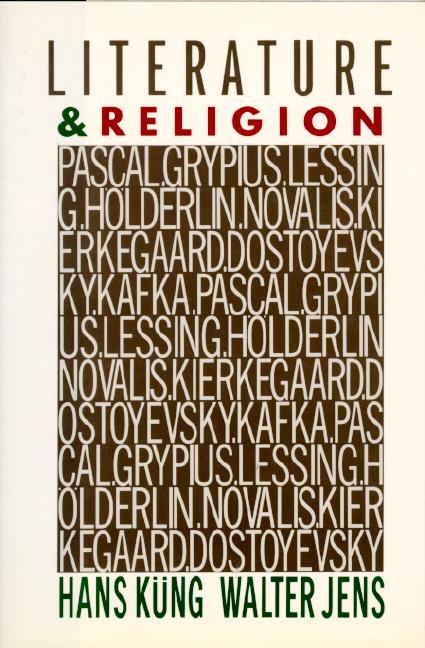The eclipse of God, the subsequent twilight of the gods, the downfall of the modem pseudogods can be followed by a new morning in a paradigm of postmodernity (a name for what is as yet unknown).
Yes, let us look forward. If I read the signs of the times rightly, toward the end of our century rebellion against the Kafkaesque world is everywhere afoot.... Literature and religion in one: a theme of hope for a new futurean era that can bring forth literature in which great theology and great aesthetics enter once again into an exemplary intimacy. –Hans Küng, from Literature and Religion
Up until the seventeenth century, Western culture was essentially synonymous with Christian culture. Then, on the very border between the medieval and the modem worlds, this unity of authority and belief began to crumble. For the first time, an intellectual life developed that was independent of the church, and modem, rational man surged toward new models of the world, society, the church, and theology.
In Literature and Religion, Hans Küng and Walter Jens survey
the complex, vital, and contradictory search for faith over the past three
hundred years through the key works of eight great writers. At the dawn
of modernity, Blaise Pascal was the prototype of the new modern man, measuring
religion against developments in science, technology, and industrialization.
Andreas Gryphius records the forces of the German Reformation, while Gotthold
Lessing embodies the Enlightenment.
Romanticism is represented by works of Ho1derlin and Novalis, and the
crisis of the nineteenth century by Kierkegaard and Dostoyevsky. Finally,
Küng and Jens show the demise of the paradigm of modernity in the
extreme distance between God and man in Kafka’s The Castle.
Hans Küng, the renowned theologian, and Walter Jens, a literary
specialist, bring contemporary postmodern consciousness to bear on centuries
of interwoven poetry and faith. Readers today will find answers to the
ongoing dialogue on the possibilities and limits of faith in our fractured
age.
HANS KÜNG is a former Catholic theologian and served as an advisor to Vatican II. He is currently the director of the Institute for Ecumenical Research and the author of over twenty books on theology, including Does God Exist? and Theology for the Third Millennium.
WALTER JENS is Distinguished Professor of Rhetoric at the University of Tubingen.






